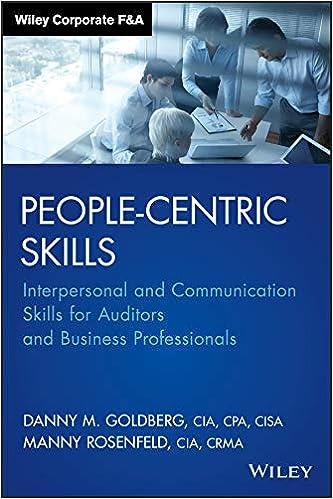Question
Question 1: Following are ten pairs of assertions: 1. a- Existence or occurrence of inventory. b- Existence or occurrence of building. 2. a- Valuation or
Question 1: Following are ten pairs of assertions:
1. a- Existence or occurrence of inventory. b- Existence or occurrence of building.
2. a- Valuation or allocation of cash. b- Valuation or allocation of deferred income taxes.
3. a- Existence or occurrence of accounts payable. b- Completeness of accounts payable.
4. a- Rights and obligations of accrued wages payable. b- Rights and obligations of liability under warranties.
5. a- Presentation and disclosure of repairs and maintenance expense. b- Presentation and disclosure of telephone expense.
6. a- Valuation or allocation of long-term investments. b- Valuation or allocation of land.
7. a- Existence or occurrence of accounts receivable. b- Completeness of accounts receivable.
8. a- Existence or occurrence of cash. b- Valuation or allocation of cash.
9. a- Valuation or allocation of bad debts expense. b- Valuation or allocation of depreciation expense.
10. a- Valuation or allocation of receivable due from affiliate. b- Valuation or allocation of note payable to bank.
REQUIRED a. For each pair of assertions, indicate whether (a) or (b) would typically have the higher inherent risk and state why.
b. In addition to factors that affect individual assertions, the assessment of inherent risk requires consideration of matters that may have a pervasive effect on many or all accounts or assertions in an entity's financial statements. State five examples of matters that may have such pervasive effects.
Step by Step Solution
There are 3 Steps involved in it
Step: 1

Get Instant Access to Expert-Tailored Solutions
See step-by-step solutions with expert insights and AI powered tools for academic success
Step: 2

Step: 3

Ace Your Homework with AI
Get the answers you need in no time with our AI-driven, step-by-step assistance
Get Started


